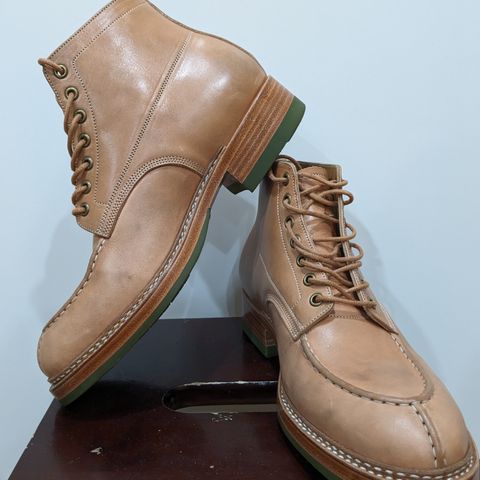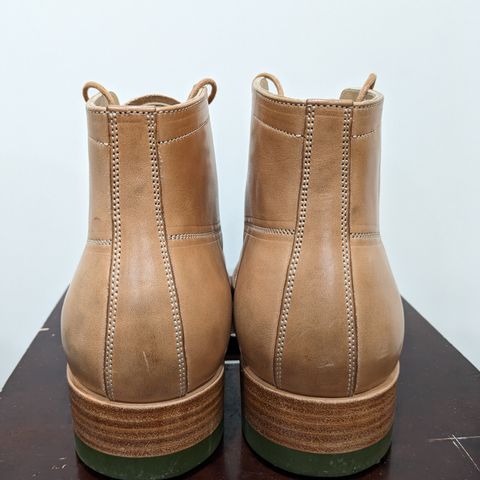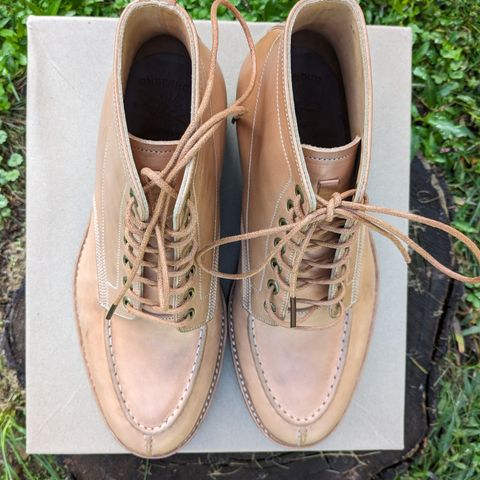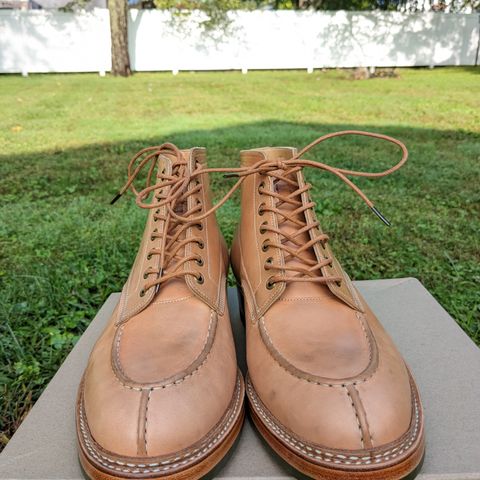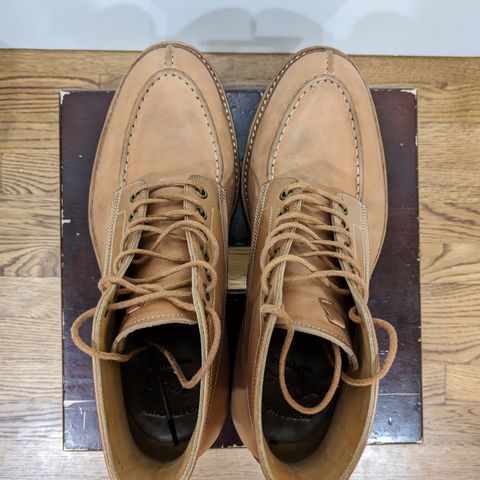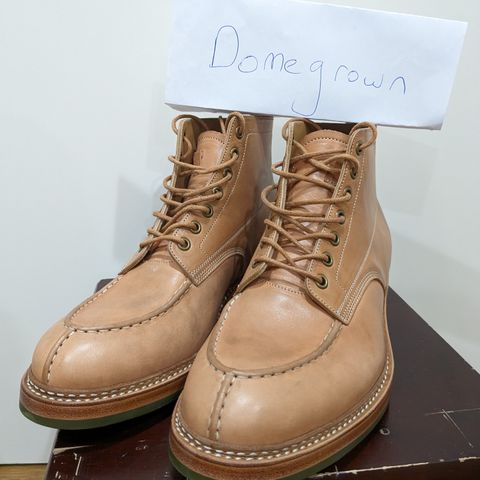About
The SPL01 Split Toe Boots are a handcrafted split toe boot model produced by Onderhoud Handmade, an Indonesian bootmaker based in Bandung, West Java. The boots feature traditional apron-front split toe construction and are made using hand-welted techniques that trace their origins to 19th-century European shoemaking methods introduced during Dutch colonial rule in Indonesia.
About
The SPL01 Split Toe Boots are a handcrafted split toe boot model produced by Onderhoud Handmade, an Indonesian bootmaker based in Bandung, West Java. The boots feature traditional apron-front split toe construction and are made using hand-welted techniques that trace their origins to 19th-century European shoemaking methods introduced during Dutch colonial rule in Indonesia.
Each pair is individually handcrafted by Rizky Afnan and his apprentices using traditional construction methods that require significantly more time and labor than modern machine-welted boots. The SPL01 represents Onderhoud's approach to preserving heritage bootmaking techniques while offering extensive customization options for heritage footwear enthusiasts. Due to the labor-intensive handcraft process, production is limited to only two to three pairs per week across all of Onderhoud's boot models.
Construction
The SPL01 Split Toe Boots utilize hand-welted construction, a traditional method that predates modern Goodyear welting by over a century. This technique involves hand-stitching the upper to a leather welt, which is then hand-stitched to the sole, creating a construction that enthusiasts prize for its durability and repairability. The hand-welting process is vastly more difficult and labor-intensive than machine Goodyear welts, contributing to the boots' limited production numbers.
The split toe design features an apron-front construction where the toe piece is sewn over the vamp with visible stitching, creating the characteristic split appearance. Onderhoud Handmade offers multiple construction variations including Veldtschoen construction and flat Goodyear welt options, allowing customers to specify their preferred construction method based on intended use and aesthetic preferences.
Customization options extend to structural elements including structured versus unstructured toe construction, single versus double leather midsoles, and choice between vertical and Cuban or curved heel designs. The bootmaker sources premium Italian vegetable-tanned leathers from established tanneries including Badalassi Carlo and Maryam, with leather selection influencing the final price of the boots.
Heritage and origin
The SPL01 Split Toe Boots reflect Indonesia's distinctive position in heritage footwear manufacturing, particularly the concentration of traditional craftsmen in Bandung, which serves as the country's fashion capital and creative hub for artisans. The city's shoemaking heritage traces back to Dutch colonial rule, when European shoemaking techniques were introduced to the Indonesian archipelago in the 19th century.
The Cibaduyut area of Bandung was historically known as one of the largest shoemaking areas in Asia, where traditional hand-welting techniques were widely used until the 1970s. When Dutch colonial rule ended after World War II, the shoemaking industry remained and eventually concentrated in Bandung, where craftsmen like those at Onderhoud Handmade continue to employ these traditional methods.
Indonesian bootmakers are notable for specializing in rare, old-world construction methods that larger manufacturers abandoned over a century ago in favor of mechanized production. The preservation of these techniques has attracted international attention from heritage footwear enthusiasts, particularly in North America and Europe, where demand for handcrafted boots using traditional methods has grown significantly.
Ordering and availability
The SPL01 Split Toe Boots are available exclusively through Onderhoud Handmade's Instagram account @onderhoud.handmade, which serves as the primary ordering platform for the bootmaker's limited production. Due to high demand and the time-intensive nature of handcraft production, Rizky Afnan employs a lottery system for order placement, opening for orders only periodically through Instagram announcements.
The lottery system was implemented because demand far exceeds the workshop's production capacity of two to three pairs per week across all boot models. When ordering opportunities become available, customers who win the lottery work directly with Rizky to specify their desired customizations, including leather selection, construction method, and sizing details.
Typical pricing for custom orders is approximately $435, making the boots competitive with other handmade footwear while offering extensive customization options typically associated with higher-priced American or European makers. The relatively accessible pricing reflects both Indonesia's manufacturing costs and Onderhoud's commitment to making traditional craftsmanship available to heritage footwear enthusiasts globally.
References
"Onderhoud Handmade". Instagram. Retrieved September 18, 2025.
"Traditional Bootmaker". Sagara Bootmaker. Retrieved September 18, 2025.
Jackson, Emma. "Made in Indonesia: The globalisation of Indonesia's footwear industry and the legacy of shoemaking". Garland Magazine. October 2019. Retrieved September 18, 2025.
"Tahura Boots Company". Boots of Indonesia. Retrieved September 18, 2025.
